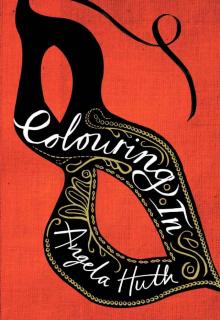- Home
- Angela Huth
Another Kind of Cinderella and Other Stories Page 5
Another Kind of Cinderella and Other Stories Read online
Page 5
Wonderful, thought Tom Deary. That was all wonderful, indeed. Just what Ballymorning needed to give the locals a shot in the arm. He stopped his polishing for a moment to look down the street, see if any of the crowds so keen for the QE2 experience might be making their way towards the Armstrong-Siddeley experience – it could be a way of filling in time till the great ship arrived, he thought. If there were so many of them in the shops, as the newscaster had said, then it was unlikely they would miss his advertisement. But the street was empty. Well, to be realistic, it was more likely folk would plan to see the car on their way home. They would want a good place in the queue for the expedition to the QE2: Tom could understand that. Again, a painful wince went through him: what he would have done to be one of the first on a fishing boat, approaching the great white bows of the ship across the water – vast as an iceberg, it must surely be, vast as a skyscraper, and yet a structure that could still be lightly tossed by an angry sea. The kind of thing that made you think, that.
By midday, Tom reckoned there was not a single speck or smear left visible to the human eye. He put away his dusters. He was hungry but, not daring to leave the car unguarded, decided not to go and make himself a sandwich. Instead, he sat in the driving seat, wound down the window. Carefully, he poured lukewarm tea from a flask into a plastic cup, wiping both utensils with a handkerchief to ascertain no wayward drop would slither on to the leather upholstery. The smell of the beige leather provided its usual sense of pleasure: the thickness of the seat behind his back and under his thighs evoked a security that he could not have explained. Through the open window he could just smell the sea, a smell as frail as fine netting. Once, he’d taken a girl called Patricia to a dance in a dress of pale lilac netting, which she called tulle. For some reason, the delicate smell of the sea, nosing into the stuffy air of the car, put him in mind of Patricia – her smile, in particular.
Tom had forgotten to pick up his portable radio from the pavement. Rather than move from his comfortable position, he switched on one of the shining knobs of the car’s wireless. From out of the strip of knotty golden fabric came the newscaster’s voice, clear as anything.
The people of Ballymorning, who were expecting the arrival of the QE2 at midday, have just learned from the Lord Mayor that announcements made earlier this morning were by way of an April Fool. . . Hundreds of visitors who had rushed from miles around to witness this spectacle, and indeed to take the trip out to the great ship itself, are said to be bemused, disappointed and even angry. Over now to our reporter in Ballymorning harbour . . .’
Tom, shocked, switched off the radio. He listened to the hollow silence. An April Fool, for heaven’s sake. How could he, along with so many others, have been so gullible? How could Clive O’Farell have arranged trips around the ship, come to think of it, for all his cheeky daring? What a lot of idiots they all were . . . Even as he smiled to himself, Tom had to deal with a jolt of disappointment within him. He imagined the scenes down at the harbour, the confusion as hundreds of people tried hastily to leave in their inconsiderately parked cars. No wonder some of them found it no laughing matter. Still, the joke had been no bad thing for Ballymorning’s locals. Trade in all areas, for a few hours, had been astonishing. And at least some of the disappointed visitors, surely, would make their way up to the Armstrong-Siddeley.
Brisk with hope, Tom got out of the car. In his excitement, he slammed the door more forcefully than he had meant to, and cursed himself. Then he stood to attention, in readiness for his first customer, waiting for the business to begin. Any minute, he thought, possibly dozens of people would arrive, grateful to be afforded some amusement to make up for the disappointment over the QE2, pleased that their journey to Ballymorning had not been wasted after all.
By four that afternoon, still standing stiff as a ceremonial guard by his car, Tom was dizzy, hungry. But when he saw three figures appear at the end of the street, determinedly approaching the Armstrong-Siddeley, all such sensations vanished. There was a man in the middle, a woman on either side of him. As they came nearer, Tom could see the man wore a tartan anorak, and tracksuit of trousers of a particularly offensive maroon. They were made of some kind of slimy material that caught the light. The women – one middle-aged, one in her twenties – were just as offensively dressed in bright, chemical colours. But they were smiling. Tom smiled back, forcing the stiff muscles around his mouth. They stopped, the potential customers, a few yards from where the car and Tom were parked. Tom deemed it wise to let one of them be the first to break the silence.
‘Glory be to God, Holy Jasus,’ said the man after a while. ‘Quite a car you have here. How does your business operate, then?’
‘Do we get a five-mile ride? I shall be waving through the window like the Queen,’ said one of the women. She disengaged herself from the man, came perilously close to the car’s bonnet. She reached out a finger. Very cautiously, as if to judge the quality of a piece of jewellery, she touched its paintwork. Then she quickly withdrew her finger, as if burnt. ‘There’s polish for you,’ she said, to no one in particular. Tom’s eyes jumped to the tiny imprint her finger had left, indeterminate as a scrap of cobweb. He longed to take a duster to it, restore perfection. But, sensing that might look like rudeness, he remained where he was.
‘You don’t get an . . . actual ride in the car,’ he said. ‘As you can see, she’s a very fine antique. I would not want to take the risk over our narrow lanes, now, as I’m sure you can understand.’
The man scratched his head, puzzled. He, too, came dangerously near.
‘We read your notice in the Stores,’ he said. ‘We thought seeing as there’s no QE2 we might as well get a ride in a limo.’
‘Then I’m sorry you misunderstood the wording,’ said Tom. ‘It was not meant to suggest there would be a ride. Just a sit down in a remarkable old car, to reflect on the craftsmanship of times past, perhaps . . . For the quality experience,’ he said, seeing their faces.
A look of sullen disappointment had now taken the place of the man’s smile.
‘We’ve come all the way from bleeding Belfast,’ he said. He screwed up a fist and banged the car’s bonnet. ‘What sort of attraction do you think that is? Sitting in a stationary bloody car?’
Tom wanted to punch the man harder than the man had punched the car. But still he controlled himself, made no attempt to answer the rude question. The tension was broken by a squeal from the young woman. She leapt forward, grabbing the man’s arm.
‘Don’t you see, Dad? You know what this is? It’s another April Fool! Two in one day.’ She smiled lavishly at Tom.
Her father looked at her. Comprehension began slowly to ooze from his pores. His expression of anger gave way to one of good humour, made sluggish by drink. He laughed, a raw, brutish laugh.
‘Good heavens, you’re right, too, girl. Place is full of April Fools, I’ll say that now. Something to remember. Caught twice . . .’ He twinkled at Tom. ‘You’ve pulled off a fine trick, sir. Good luck to you.’ He laughed. The women joined him, red mouths pulling back from smoker’s teeth. They turned away, linking arms again.
All the way down the street they continued to laugh. As Tom got into the driving seat to return the car for the last time to the garage, he could hear them. He placed his hands evenly on the steering wheel, contemplated the trio through the immaculate windscreen. They shifted from side to side of the pavement, the women supporting the man in his unsteadiness. Their ugly noise still reached him. Tom wound up the window, cutting it off.
Silence returned: safety. Tom started the engine. For a moment he listened to its discreet music, then gently steered the great machine towards the garage. It occurred to him that people so foolish to think that his idea was an April Fool were not the sort of people who would have been any good at describing the trip to the QE2, had that not been an April Fool: and he found this thought was of some comfort.
Mothers and Fathers
They had been sitting in the room together for
a long time, in silence, unknown to each other, surreptitiously reading signs as strangers do.
He saw a woman in her early forties, an arrogant flare of nostril, fading reddish hair, good cheekbones, floppy beige clothes considerably smarter than those of most of the mothers he encountered on school occasions. She saw a man ten years older than herself, once perhaps handsome, now balding, red silk handkerchief in the pocket of his pinstripe suit indicating a certain flashness that did not match his aristocratic shoes. They continued their silence.
The door opened. The secretary, who earlier had shown them to the room to await their appointments, came in. She was clearly flustered.
The headmaster’s just been on the phone,’ she said. ‘It seems there’s been an accident on the Ml. He’s stuck in a tailback that goes on for miles. Dreadfully sorry, but hopes you’re able to wait. He’ll ring again in twenty minutes with a progress report . . .’ She kneaded embarrassed hands.
‘I’ll hang on till then,’ said the man.
‘So will I,’ said the woman.
‘Can I press you to a drink?’ Both parents shook their heads. ‘Very well. Make yourselves comfortable. I’ll be back as soon as I get the next call.’
‘Jack Johnson,’ said the man, as soon as the secretary had gone.
‘April Verner.’
They shook hands, looked at each other more pertinently.
Jack Johnson sighed, took the handkerchief from his pocket and waved it about like a conjurer before dabbing his completely dry forehead.
‘Damn nuisance, this. I’ve come all the way from Lincoln.’
‘I’ve only come from London.’ April smiled sympathetically.
‘Almost seven-thirty.’ He sighed again, petulantly this time. ‘You’d have thought he could have made use of his mobile phone a bit earlier, let us know’
‘Perhaps he wasn’t quite sure how to use it.’
Jack saw April smile to herself. She had pretty teeth. He looked at her with more interest.
‘How do you mean, doesn’t know how to use it? Everyone knows how to use a mobile phone. Any man who doesn’t know how to use a mobile phone shouldn’t be a headmaster.’
Their eyes met.
‘Probably you’re right,’ she said.
‘Son here, have you?’ asked Jack after a while.
‘Two.’
‘I’ve just one left, B Block. Fourth and last, thank heaven, the fees. Little wretch . . . The others were all in the top stream.’ The minuscule twitch of his mouth suggested his pride in their achievement, rather than the disappointment in the present little wretch. He flicked at the strap of a gold watch. ‘Up to no good, this last one, little monkey. Thought I’d better come and sort things out, see Smiley face to face. Headmasters can be evasive on the telephone, don’t you find? So happened I was on my way to the West Country. Would all have been very convenient if it hadn’t been for this hold-up.’
‘Both of mine are in trouble. One not working – I mean, really not working. The other caught twice in the City by himself. There without permission.’ She smiled again.
‘Boys will be, and all that,’ said Jack, smiling in return.
Their next spell of silence was interrupted by the return of the secretary.
‘It’s quite hopeless, I’m sorry. Mr Smiley’s just rung again to say there’s no telling, it may be hours. You mustn’t wait. Would you like to make new appointments now, or shall I ring tomorrow?’
‘Tomorrow’ll do,’ said Jack. ‘When I’m with my office diary. Most inconvenient.’ He shook his head, making sure the secretary was in no doubt of his feelings, indicating just what he thought of a headmaster who goes away on an afternoon when he has appointments with busy parents in the evening, thereby running the risk of failing to keep those appointments. Smiley should have been in school all afternoon, prepared. He should have made absolutely sure he was there.
The secretary, a-dither with more apologies, showed them to the front door. They walked together out into the road, where Jack Johnson’s Bentley was parked in front of April Verner’s Volvo.
‘I’ve booked myself into The Old Parsonage for the night, matter of fact. Lovely place, always stop there when I have a chance,’ said Jack. ‘Why don’t you come and have a drink before you go back to London? We could even have a bite to eat.’
April hesitated. She was hungry, tired. It had been a long and busy day at the office. No time for lunch. No time for shopping. Empty fridge at home. Empty house. Martin off somewhere in France, setting up one of his deals that necessitated Marilyn, his personal assistant, being there too.
‘Lovely,’ she said. ‘I’d like that.’
In return for a drink and a sandwich, she was prepared to put up with almost any kind of company, even this tetchy father for whose fourth son she felt instinctive pity.
In the bar of The Old Parsonage, they sat at the small, polished table, previously booked for one, in a corner. April looked round at the hazy colours of the room, with its lively wood fire and myriad pictures on the walls, and a curious sense of luxury possessed her. These days, she was rarely asked out for a drink. Spontaneous adventures, the essence of her youth, had long since ceased. No matter how dreadful Jack Johnson, and she didn’t like the way he waved ostentatiously at the waiter with a fat hand, she was determined to enjoy the next hour.
‘Bottle of champagne – how about that? We need something to calm us down. Wretched fellow, Smiley, messing us about like this.’
April nodded. She longed for champagne.
‘How about bagels and smoked salmon? They do it jolly well here. Or the lobster ravioli, would you rather? Mind you leave room for the tiramisu.’
It was fun, choosing what to eat, though when she gave herself a moment to analyse the fun April realised it was the nefarious element more than the company that appealed to her. Here she was in Oxford, having supper with a fellow parent because the headmaster had not turned up . . . and Martin had no idea. Not all that wicked, really.
‘Let’s get through the CV,’ Jack was saying, as they sipped the dry champagne. ‘I’m a printer. Businesses all over the place. Lot of travelling about. Live in Lincolnshire, one wife, four sons. You?’
April hoped that after two rather large gulps of her drink she could be equally succinct.
‘I’m a barrister. Specialise in divorce.’ She saw Jack’s eyebrows briefly clench. ‘Just the two sons, as I said, both still here. My husband’s in the import–export business – can’t say I know a great deal about it. It means he has to go abroad a lot. He’s in Paris at the moment.’ With Marilyn, she didn’t say.
‘That’s us, then,’ said Jack, filling glasses. ‘Jolly good. Now we can get on to something interesting.’
No immediate subject sprang to either of their minds, but halfway through their ravioli they found themselves ruminating on the one topic they had in common – parenthood.
‘I suppose we’re all bloody awful mothers and fathers, no matter how good our intentions to be otherwise,’ ventured Jack. The champagne-induced pinkness of April Verner’s cheeks appealed to him. ‘Nature of parenthood. Nothing but failure and disappointment. Well, I go too far. When they do well, it’s jolly satisfying. And I have to say my eldest three are a bright lot, conscientious. Suppose they got their brains from their mother – she’s a scientist. I was never a scholar myself, nothing very brainy about Jack Johnson. Except when it comes to business. I’m a businessman through and through. Love it, the cut and thrust, the money. But young Simon, the little wretch I’d come down to talk about – he’s a funny lad. Bit of a flibberty-gibbet, like me. Bit of a depressive . . . Don’t know what’s got into him these last couple of years. He’s a worry, to tell the truth.’Jack paused to fill their glasses. ‘Could be, I suppose, not quite ideal conditions at home these days, getting to him. Sheila and I seem to . . . have our disagreements. Think Simon’s got it in mind we may be going to get divorced. Well, that’s not so, but I’m damned if I know how to convince him. Aw
kward sort of subject. I’m not much good at that sort of thing.’
‘My two are always asking why their father is away so much,’ said April, after a while. ‘I mean, they know it’s business, his work. But it’s as if they have their suspicions.’
‘And might they be right?’
‘No.’ Lying to a stranger was better than disloyalty to a husband, for all his unfaithfulness.
‘That’s good. Ravioli all right?’
‘Delicious.’
‘You can’t hide much from children. They’re canny little buggers, see much more than you suppose.’
‘True.’
‘You’re a damn pretty woman, if I may say so.’
Thank you.’
‘Are you on for the tiramisu?’
‘Please. I’m something of a chocolate freak.’
‘Cream’s my undoing. You’ll never convert me to this crème fraîche business. Sheila’s always saying I’ll end up with a heart attack. But a man can’t be expected to give up all treats, can he?’
April’s silence showed she felt the question to be rhetorical. In fact, her head was so fizzing with small explosions of light that it would have been beyond her to give the silly question a considered answer. Through the scintillating veil before her eyes, she saw her host as he must have been some twenty years ago, before his love of cream had pouched the skin around his jaw and the business lunches had reddened his cheeks. Her thoughts then turned to Martin. He was not a generous man. He would not consider it economically sound to spend money on champagne for his girlfriend. Somewhere in France, Marilyn would be sipping vin ordinaire. April felt unusually happy.

 Sun Child
Sun Child South of the Lights
South of the Lights Virginia Fly is Drowning
Virginia Fly is Drowning Of Love and Slaughter
Of Love and Slaughter Such Visitors
Such Visitors Once a Land Girl
Once a Land Girl Land Girls
Land Girls Colouring In
Colouring In Nowhere Girl
Nowhere Girl Monday Lunch in Fairyland and Other Stories
Monday Lunch in Fairyland and Other Stories Another Kind of Cinderella and Other Stories
Another Kind of Cinderella and Other Stories Invitation to the Married Life
Invitation to the Married Life Easy Silence
Easy Silence